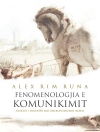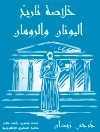Dioramas are devices on the frontier of different disciplines: art, anthropology, and the natural sciences, to name a few. Their use developed during the nineteenth century, following reforms aimed at reinforcing the educational dimension of museums. While dioramas with human figures are now the subject of healthy criticism and are gradually being dismantled, a thorough study of the work of artists and scientists who made them helps shed light on their genesis. Among other displays, this book examines anthropological dioramas of two North American museums in the early twentieth century: the American Museum of Natural History in New York, and the New York State Museum. Sites of creation and mediation of knowledge, combining painting, sculpture, photography, and material culture, dioramas tell a story that is always political.
A propos de l’auteur
Noémie Étienne, University of Bern.












